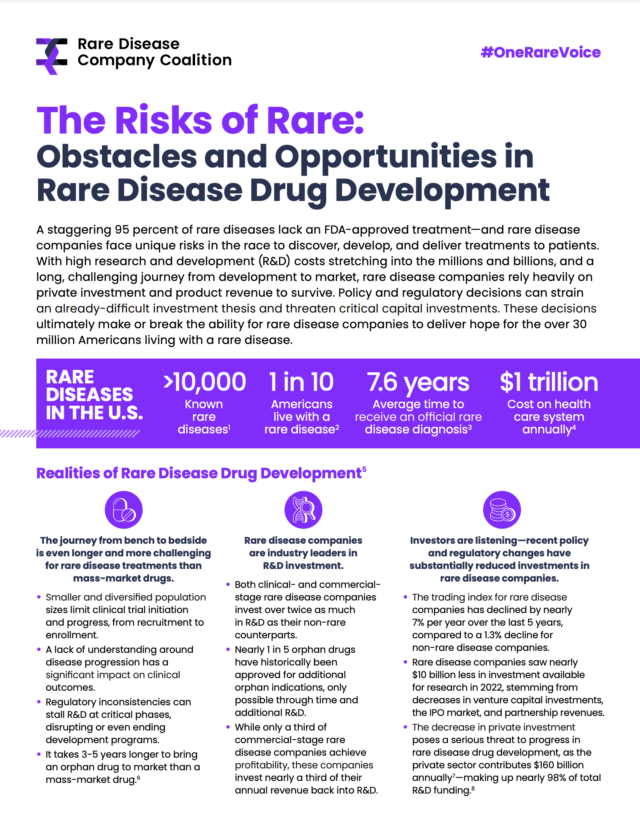Resources
New White Paper Examines the Impact of Policy Uncertainty on Investment in Rare Disease Drug Development
A new white paper authored by Health Capital Group and sponsored by the Rare Disease Company Coalition considers the financial risks of rare disease drug development and how policy and regulatory changes can strain an already-difficult investment thesis. The study analyzed 700 publicly traded biopharmaceutical companies from mid-2018 to mid-2023 to better understand how rare disease companies and investors have been impacted by the shift in the policy environment over the past five years.
The data demonstrates that rare disease companies are struggling to survive in the current policy and funding ecosystems. Venture capital investments in rare disease were nearly halved in 2022 and rare disease IPOs were down by nearly 90%. Additionally, rare disease companies saw nearly $10 billion less in investment available for research in 2022, stemming from decreases in venture capital investments, the IPO market, and partnership revenues. Despite these challenges, rare disease companies continue to invest twice as much into research and development (R&D) as their non-rare counterparts. In a period of such financial uncertainty, seemingly small policies and proposals can have hugely consequential impacts on the ability for rare disease companies to discover, develop, and deliver potentially life-changing treatments to patients.
With 95% of over 10,000 rare diseases still lacking an FDA-approved treatment, policymakers must recognize the extraordinary unmet need for the 30 million Americans living with a rare disease. We urge policymakers to recognize the unique risks, challenges, and costs associated with rare disease drug development and support policies that promote innovation and R&D and enable access to rare disease treatments.
Read the full white paper titled, ‘Rare Disease Companies in the Public Markets: Challenging Performance Against a Backdrop of Policy Uncertainty’ here.
An overview can be found here.
